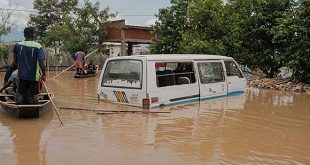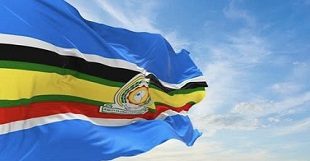
Johannesburg, South Africa | AFP | South African President Cyril Ramaphosa on Saturday said the country’s debt-laden power utility Eskom would not be privatised and pledged to restore it to full capacity.
Rolling blackouts were implemented several times last year to prevent the grid collapsing and resumed last weekend despite a government promise not to ration power during the first two weeks of January.
Eskom chair Jabu Mabuza stepped down Friday in protest.
“Eskom will be restored to becoming a company that can provide energy,” said Ramaphosa, speaking at the 108th birthday celebration of the ruling African National Congress (ANC) party.
“We are not going to privatise Eskom,” he added. “We are going to strengthen Eskom so that it can deliver energy as it should.”
Eskom, which supplies 95 percent of South Africa’s electricity, has been crippled by poorly designed coal-fired power stations, as well as decades of mismanagement and alleged corruption under former national president Jacob Zuma.
It has amassed 450 billion rand ($31 billion, 28 billion euros) in debt, which economists warn is a major threat to Africa’s most industrialised economy.
Ramaphosa on Saturday urged Eskom management to rapidly restore its ailing power stations and promised government assistance for the task.
He said new power plants faced a “number of design challenges” that needed to be fixed.
South Africa’s government has pledged 128 billion rand (around $8.9 billion) to Eskom over a three-year period that began in February 2019.
The president has also announced plans to divide Eskom into three subsidiaries: generation, transmission and distribution, by March 2020.
“It is too big to fail and we will not allow Eskom to fail,” said Ramaphosa, addressing supporters sporting the ANC’s black, green and yellow in the central city of Kimberley.
But pressure has been piling on the president, who was re-elected in May on a promise to revive the economy.
The International Monetary Fund warned last year that continuous bailouts to state-owned entities were not sustainable and that growth could not be generated by government spending alone.
This week, the World Bank cut its economic growth forecast for South Africa from 1.0 percent to 0.9 percent in 2020 due to electricity supply concerns.
“This has a negative impact on our economy and on the lives of our people,” said Ramaphosa, who pledged to speed up “the pace of economic growth”.
He added that the country would seek alternative sources of energy from private companies and gas shipments, and pledged to reduce South Africa’s carbon footprint.
“We will step up our investment drive… reduce the cost of doing business, and see to the creation of jobs,” he said.
“For all these efforts to succeed, we must ensure the stability of electricity supply.”
 The Independent Uganda: You get the Truth we Pay the Price
The Independent Uganda: You get the Truth we Pay the Price


